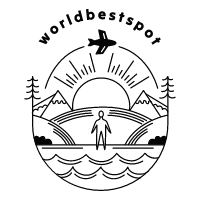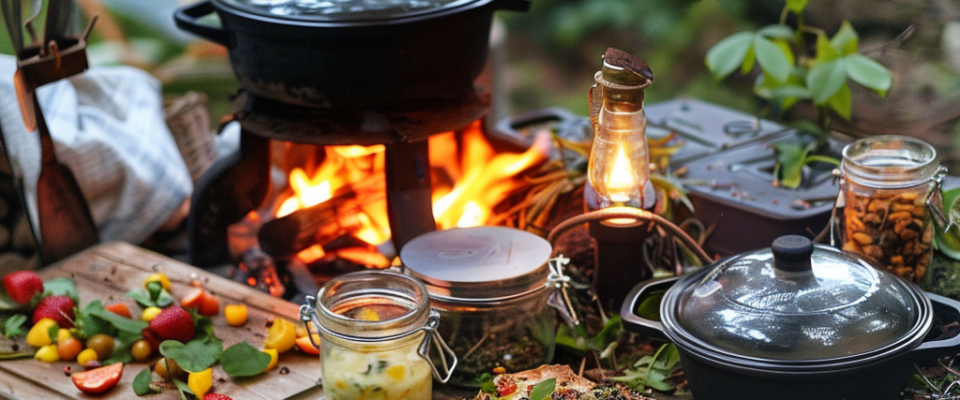Camping is not only an opportunity to enjoy nature and a break from the hustle and bustle of the city, but also a time to reconnect with the simplicity of life and cook delicious and nutritious food outdoors. When planning a camping trip, one of the important aspects is to create a menu that will satisfy the energy needs and delight the taste buds of each participant.
Camping menu planning
Planning a camping menu requires careful consideration and consideration of several key factors:
- Duration of the trip: Consider the number of days you plan to spend camping to determine the amount of food needed and create a menu accordingly.
- Route features: Think about where you plan to stay overnight and whether there are cooking facilities (eg, fires, gas burners). This will help determine what products and equipment you will need.
- Participants’ preferences: Consider each participant’s dietary preferences, as well as any restrictions or allergies, to select appropriate meals and ingredients.
- Menu variety: Strive for a variety of dishes to avoid monotony and satisfy the taste needs of all participants. Include different cuisines and different types of products on the menu.
- Seasonality and availability of products: Pay attention to the seasonality and availability of food at your campsite. Plan your menu around seasonal fruits, vegetables and other local produce.
Breakfasts in nature
Breakfast is the most important meal of the day and provides the body with the energy it needs to start the day. Cooking breakfast in nature can be a simple and enjoyable process that will help you start the day in a good mood. Here are some ideas for delicious and nutritious breakfasts in nature:
- Porridges and omelettes: Prepare porridge based on oatmeal, buckwheat or corn grits, adding dried fruits, nuts or fresh fruit for taste and nutrition. You can also make omelets with vegetables, cheese or ham.
- Granola and yogurt: Prepare homemade granola in advance with nuts, dried fruits and honey, and serve it with yogurt or milk. This is a quick and satisfying breakfast that will provide you with energy for a long time.
- Fruit salads: Chop a variety of fresh fruits such as apples, bananas, oranges, pears and berries and mix them into a salad. Serve with natural yoghurt or honey for added sweetness.
Lunches and snacks
Lunch and snacks while camping should be light but nutritious to maintain energy and mood throughout the day. Here are some ideas for outdoor lunches and snacks:
- Sandwiches and sandwiches: Prepare a variety of sandwiches with meat, cheese, vegetables and sauces. Use different types of bread, such as baguette, rye or pita, for a variety of flavors.
- Soups and hot dishes: Pre-cook soups based on chicken or beef broth with the addition of vegetables and noodles. You can also prepare hot dishes such as pasta with sauce, rice dishes or ready-made cereals.
- Nuts and dried fruits: Energy-rich nuts and dried fruits are great for snacking in nature. Small portions of almonds, hazelnuts, raisins or prunes will help replenish energy and satisfy hunger.
By planning your outdoor breakfasts, lunches, and snacks in advance and taking into account each camper’s individual preferences, you can enjoy delicious, nutritious meals during your camping trip.
Drinking regime
Staying properly hydrated is an important part of the camping experience.
Adequate water intake: Drink water regularly throughout the day, especially in hot weather or when exercising. It is usually recommended to drink at least 2-3 liters of water per day in nature.
Water storage methods: Use special containers to store water to keep it clean and fresh. Check the condition of containers and their tightness before each use.
Water purification and filtration: If you use water from outdoor sources, make sure it is purified and filtered before drinking. Use special filters or chemicals to purify water to avoid contamination by pathogens.
Safety and hygiene
Compliance with safety and hygiene rules plays a key role in ensuring a comfortable and safe stay in nature.
Rules for extinguishing a fire: When cooking over an open fire, make sure to follow safety rules. Extinguish the fire carefully after use to avoid fire.
Product storage: Store food in airtight containers or bags to avoid contamination or contamination. Pay attention to expiration dates and storage conditions of products.
Cleanliness of hands and utensils: Keep your hands clean before eating by using hand sanitizers. Also remember to keep your utensils and kitchen equipment clean to avoid food contamination.
Recycling: Follow the rules for waste disposal, use special garbage bags and do not leave garbage in nature. Compliance with the rules of environmental behavior will help preserve the cleanliness and beauty of the environment.
Proper nutrition, hydration, and safety and hygiene play an important role in a comfortable and safe camping experience. Creating a menu, taking into account nutritional needs and taste preferences, as well as the ability to properly handle food will allow you to enjoy outdoor recreation to the fullest, while maintaining health and safety.
When planning a camping menu, it is important to consider the duration of the trip, the features of the route, the preferences of the participants and the availability of products.
Following safety and hygiene rules helps prevent possible accidents, protect against food contamination and keep the environment clean.

